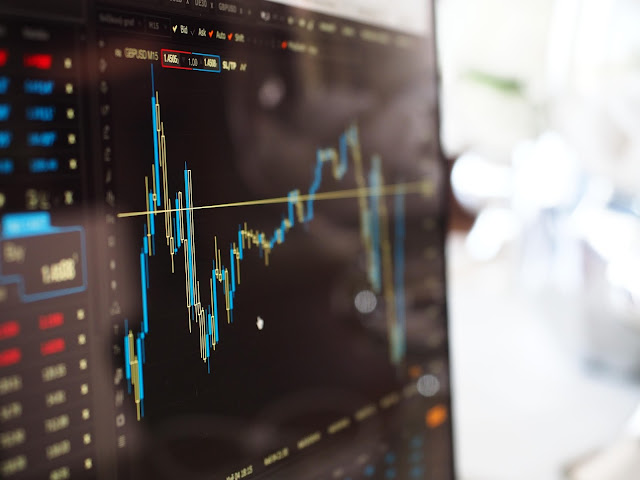Really ? US to intervene in FX markets ? Surely not ..... but then again, this IS Donald Trump we're talking about .....
ref :- "FX Traders Are on Alert as US Dollar Intervention Risk Climbs" , Bloomberg Markets
Like a lot of people, we often find ourselves saying that nothing would surprise us when it comes to the current US administration. It's not entirely true, though .... there are certain things that even in this crazy world we just would not have considered a realistic possibility, never mind a likely one. The prospect of the US authorities stepping into foreign exchange markets to sell the dollar and reduce the value of the US unit would be one of them. Our thanks therefore have to go to Bloomberg for bringing to our attention the fact that such heavyweights as JP Morgan Chase , Deutsche Bank and State Street Global Advisors view such an event as a genuine risk.
Of course, we've heard all the Trump rhetoric on the subject -- accusing China and more recently the EU of manipulating their currencies lower in order to gain a trade advantage -- but had been probably been a bit complacent in assuming that this was a case of the President firing from the lip rather than a possible precurser to direct intervention.
FX traders are always on the lookout for intervention in the market, but these days few would associate such a policy with the authorities in charge of the world's reserve currency. The US hasn't sold dollars since 2000, which was part of coordinated G7 action to support the rather sickly new kid on the block, the Euro. It bought dollars in 2011, again as part of a coordinated action, this time to put a cap on a rampant Yen that was the result of huge repatriation of funds after the earthquake and tsunami in Japan. Those two occasions aside, we haven't seen any direct and self-interested action since the days of Presidents Carter, Bush Snr and Clinton.
If he should decide to go that route, President Trump will not pay too much attention to the lack of recent precedents, current convention or whether he upsets either the US' partners or their competitors. Both might very reasonably point out the main reason behind recent dollar strength, and the lack of logic in Mr Trump's argument. The President likes to take the credit for the spectacular rise in US assets and the very strong growth in the economy. Capital inflows and the steady upward path in US interest rates that is the result of the economy's performance are the real reasons behind dollar strength, not underhand manipulations by others. You can't have it both ways, Mr President ..... if you really are responsible for the growth rate last measured above 4.0% for the second quarter, then as a consequence you're also responsible for the higher rates that you so dislike and the strong dollar that they promote.
One might also suggest to Mr Trump (if you were standing far enough away from him) that notwithstanding any legitimate grievances that the US might have had, the trade war scenario that he has brought about so triumphantly has also inflated the value of the dollar. The dollar is the safe-haven currency of choice, not least because Mr Trump is right when he says that the US has less to lose from such a conflict (though they will still lose along with everyone else).
So , if .... and it's a big if ..... the US should start to sell dollars, what could we expect ? With the market positioned long of greenbacks, the most likely outcome would be a very sharp and deep reversal for the dollar in the short-term. It would still be a surprise, after all. But the consensus seems to be that the move would be short-lived, as the market took the view that a weaker dollar is not justified by the fundamentals.
As we say, on balance the odds are firmly against direct US intervention even if it's not as remote a possibility as it was. The logic behind such a move is flawed, though that won't bother the President too much. It would also bring him into conflict with the Fed, which may make him think twice even if he has already shown the first signs of wanting to influence central bank policy. Perhaps most crucially, if the US did take such a step one could expect concerted retaliatory action by other nations. The prospect of some form of global alliance squaring up against the US is one that more considered US officials would find deeply troubling, and would be a very big deterrent. Given the combative nature of the President and his administration however, there are no guarantees that that it would be big ENOUGH.
What we can expect is that Mr Trump will have plenty more to say on the subject. Let's just hope he talks the talk, without walking the walk ......



No comments